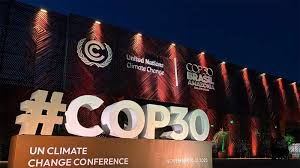
US Absence at COP30: A Climate Challenge
The absence of the United States at the COP30 climate conference in Belem, Brazil, raises significant questions about its role in battling climate change. The US, historically the largest emitter of greenhouse gases, has faced criticism under President Trump, who withdrew from the Paris Agreement. This withdrawal reflects a troubling trend of climate skepticism that undermines global efforts to combat climate change.
While the US's absence might limit its ability to obstruct progress at the conference, it simultaneously poses challenges for global emission reduction and climate finance. The United States is responsible for over 11% of annual global emissions, making it a crucial player in the fight against climate change. Without substantial contributions from the US, achieving global emission reduction targets becomes more difficult.
Moreover, the US has had a modest record in providing financial and technological support to developing countries, despite being home to some of the world's richest companies and advanced technologies. The promised annual target of US$ 100 billion from developed countries has often gone unmet. The Biden administration has claimed to increase its climate finance contributions, but this still falls short of the needs expressed by developing nations.
The implications of the US's reduced involvement are far-reaching. It could hinder financial flows necessary for climate action and limit resources for climate research and science. Under Trump, funding for vital institutions like the National Oceanic and Atmospheric Administration and the Environmental Protection Agency has been cut, risking long-term damage to climate research.
Interestingly, while the federal government shows a lack of commitment, several state governors and city officials, along with corporate leaders, are actively participating in COP30. This indicates that there is substantial support for climate action within the US, contrasting with the federal stance. Ultimately, the situation illustrates the complexities of the US's role in global climate negotiations and the urgent need for collective action to address climate change.









